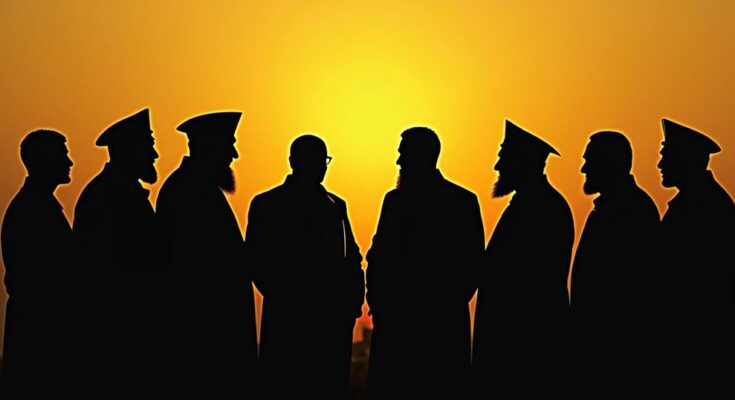In a recent escalation of the conflict, Israeli airstrikes have killed seven high-ranking Hezbollah officials, including leader Hassan Nasrallah. This event signifies a critical turning point for the group, affecting its operational capacity and leadership structure amid ongoing hostilities between Israel and Hezbollah.
In the span of just over a week, intensified aerial assaults conducted by Israeli forces in Lebanon have resulted in the deaths of seven prominent officials of Hezbollah, including the group’s leader, Hassan Nasrallah. This striking turn of events has left Lebanon and various parts of the Middle East in a state of shock, with Israeli officials publicly acknowledging significant advancements in their military and intelligence operations. These strikes were launched following Hezbollah’s establishment of a front supporting its ally Hamas, soon after Hamas’s unexpected offensive against southern Israel. The assassination of high-ranking Hezbollah officials represents a severe escalation of hostilities, marking a pronounced shift in the ongoing conflict between Israel and Hezbollah. Among the deceased, Hassan Nasrallah, who had led Hezbollah since 1992, was a pivotal figure in the group, guiding its involvement in numerous regional conflicts and solidifying its status as a dominant military and political force in Lebanon. He was known for his controversial role in enhancing Hezbollah’s military capabilities while balancing political ambitions. Other significant figures lost include Nabil Kaouk, the deputy head of Hezbollah’s Central Council, who had been with the organization since its inception, and Ibrahim Akil, a leading commander of the Radwan Forces, who was linked to historical acts of terrorism against the United States. Ahmad Wehbe, another commander, was instrumental in the Radwan Forces’ operations, alongside lesser-known yet critical leaders like Ali Karaki and Mohammad Surour, both pivotal in Hezbollah’s military strategy. The group also suffered the loss of Ibrahim Kobeissi, who led the missile unit implicated in key operations against Israeli forces. Notably, the death of these leaders has left Hezbollah in a vulnerable position, forcing the group to reconsider its operational strategies and leadership hierarchy. While Nasrallah’s second-in-command, Naim Kassem, remains as the highest-ranking official, future leadership prospects seem to point towards Hashim Safieddine, who has familial ties to the previous leadership and may shape the organization’s direction moving forward.
The Background of this situation stems from the ongoing and often volatile conflict between Israel and Hezbollah, a significant militant group operating in Lebanon. Hezbollah, established in the early 1980s amidst the Lebanese Civil War, has consistently positioned itself as a key player in the broader geopolitical struggles in the Middle East, engaging in various military and political endeavors. The recent escalation has occurred against the backdrop of Hezbollah’s engagement in support of Hamas during the ongoing conflict with Israel, marking a critical phase in what observers describe as a changing landscape of warfare and strategic calculations in the region. The losses incurred by Hezbollah’s leadership reflect a critical turning point in this longstanding confrontation, with implications not only for Lebanon but for the broader Middle Eastern geopolitical dynamics.
In conclusion, the recent Israeli airstrikes that led to the deaths of seven high-ranking Hezbollah officials, including the organization’s leader Hassan Nasrallah, underscore a notable shift in the conflict dynamics between Israel and Hezbollah. The impact of these losses poses significant challenges for Hezbollah as it reassesses its operational strategies and leadership structure amid an active conflict with Israel. As the region continues to evolve, the ramifications of these deaths will likely echo through Hezbollah’s future actions and their interactions with other regional actors.
Original Source: www.nbcphiladelphia.com




